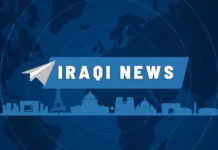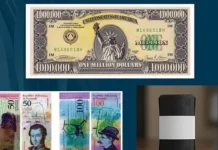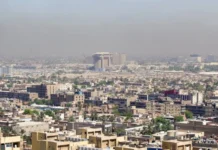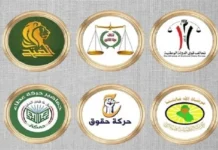The Most Notable Achievement In 2025
Economic 10/26/2025 Yasser Al-Mutawali In an evaluative look at the most prominent achievements of the year 2025, in my estimation as someone interested in and observing economic affairs, is the launch of Iraq’s Vision 2050, as a pioneering step, albeit theoretically, on the path to sound construction and development.
This step comes as Iraq is experiencing difficult times due to numerous economic, political and social challenges,
in addition to international variables that require the mobilization of all capabilities to deal with them decisively.
To clarify, it is necessary to point out the following approach, where the vision in the free liberal system is parallel to the long-term plan in the totalitarian system, especially with an equal time period or at least the approximation between them from 20 years and up.
The difference lies in the means of implementation.
The vision is defined by the state and implemented through a collaborative effort between the state and the private sector, with the private sector bearing the lion’s share of implementation.
Meanwhile, the plan is developed by the state and implemented solely by its institutions.
Here, you can observe the differences in the results and objectives.
We leave that to your interpretation.
Perhaps ambition motivates us to ensure that the state proceeds with implementing the vision’s programs and objectives, while providing the requirements, controls, foundations, and entities for implementation, rather than remaining a temporary slogan or within the concept of burning stages.
This assessment comes as we are now in the last quarter of 2025, and the remaining period includes the upcoming elections, which will inevitably establish a new government and a new parliament.
Herein lies the reservation regarding the possibility of the vision being implemented, as we are accustomed to any future government erasing any trace of its predecessor.
Therefore, I said we hope that the vision will not be a temporary slogan.
We indicated in our previous article that Iraq Vision 2050 is a vision for building Iraq and is not limited to a specific governmental phase.
Therefore, it requires that any future government proceed with its implementation.
We find it necessary to clarify important aspects that contribute to the contents and objectives of the vision.
This is achieved by focusing on extremely important aspects, foremost among which is the priority given to infrastructure to successfully implement the Vision’s projects.
This is followed by focusing on attracting foreign investments to implement the Vision’s programs by offering the necessary facilities and incentives, and not being stubborn about the wealth we possess to enrich it.
Here I point out that the Saudi Vision 2030 experience, despite its potential and wealth, has focused on attracting global investments to boost the Kingdom’s imports.
It is useful to benefit from the experiences of our Arab and regional brothers and friends, as well as from global experiences in building their countries.
Therefore, Iraq Vision 2050 has been considered the most prominent achievement of the year 2025.
We call for supporting the momentum of this vision’s success to build a new Iraq that lives up to its reputation, status, and potential to create prosperity and bring happiness to its people. https://alsabaah.iq/122683-.html
Antitrust Conference Outlines Fair Market Economy
Economic 10/26/2025 Baghdad: Hussein Thaghab The second annual conference of the Competition and Anti-Monopoly Council, which kicked off last Thursday in Baghdad, provided a high-level dialogue platform bringing together decision-makers, researchers, and experts to discuss ways to develop a fair competitive environment that contributes to strengthening the national economy and consolidating the principles of transparency and sustainability.
The conference, sponsored by Prime Minister Mohammed Shia al-Sudani and organized by the Council in cooperation with the Ministry of Higher Education and Scientific Research, witnessed broad participation from representatives of ministries, government agencies, professional unions and syndicates, and the private sector, in addition to a group of academics and international organizations.
Competition Affairs Specialist.
Economic transition
In his speech at the conference, the Prime Minister’s representative, Counselor Dr. Abdul Hussein Al-Anbaky, said:
“The government attaches great importance to the issue of competition and the prevention of monopoly, and has implemented the relevant law, which has resonated greatly, given its importance in the economy’s transition to a significant new phase.”
Al-Anbaky added that monopoly leads to declining performance and negatively impacts market development, noting that competition reduces costs, and the more we move toward general competition, the more we will achieve realistic price levels based on supply and demand.
Strengthening the reality of reform
Chairman of the Competition and Anti-Monopoly Council, Dr. Ahmed Younis Qasim, explained that the government’s implementation of Law No. 14 of 2010 in 2023 has achieved a shift within the local market, particularly as it is part of the government’s program, which enhances the reality of economic reform and creates an ideal environment within the local labor market.
He pointed out that the transition to a free economy requires sound policies at a time when the economic system is linked to oversight and competition.
He explained that implementing the law contributes to supporting production, strengthening the national labor market,
and aligns with the government’s efforts to achieve sustainable economic development.
It also supports small and medium-sized enterprises.
Addressing monopoly problems
Younis pointed out that the council is working to combat any monopolistic behavior and is cooperating with public and private institutions to address monopoly issues.
He noted that the council is working to open branches in several governorates to expand its scope of activity in supporting the national economy.
Younis emphasized that Iraq has an active presence in Arab and international competition and antitrust councils, and that we are working to exchange expertise in cooperation with global competition bodies.
Promoting a culture of competition
For his part, Deputy Secretary-General of the Council of Ministers, Farhad Nimatullah Hussein, called for strengthening institutional coordination between government agencies and the private sector to foster a transparent and open economic environment. He noted that fostering a culture of competition contributes to supporting investment, developing markets, and achieving sustainable development.
Hussein added that the government recognizes that competition is a driver of the economy and supports efforts to create a suitable business environment. He noted that the government has worked to enact laws that activate the local market and prevent competition and monopoly.
Justice in opportunities
In this context, economic expert Hisham Khaled Abbas considered promoting competition and preventing monopolies an important step adopted by the government over the past two years, as it provides the labor market with true stability and prevents monopolies to ensure fair distribution of opportunities within the national labor market.
Abbas added that the national economy is entering a new phase, which will require those seeking to work in the growing Iraqi labor market to prove their worth.
The Iraqi labor market is considered one of the most important markets in the world, with its unique features that make it virtually unique among international markets.
Competition between actors
For her part, Natalie Khaled, ESCWA Competition and Consumer Protection Project Coordinator, commended Iraq’s efforts to build a modern institutional system that contributes to developing the legal and regulatory frameworks for competition.
Khaled stated that competition among actors strengthens competitive systems and limits hegemonic practices, emphasizing that the Arab region is witnessing a widespread anti-monopoly culture, which plays a role in creating a favorable environment for work and investment.
Khaled expressed her support for the directives and legislation that prevent monopolies, especially in light of the existence of a common Arab vision that prohibits such practices and enhances competition in Arab countries.
Goods quality
Meanwhile, Dr. Saba Talib, a competition and monopoly expert, explained that since 2003, the political system has transformed from a dictatorial to a democratic pluralist system, accompanied by a shift in the economic system from a planned (socialist) to a (capitalist) system.
This transformation was not carried out in scientifically calculated steps, which negatively affected the economy and led to a state of turmoil and chaos and the creation of a group of economic blocs that began to control the economy and the general level of prices and affected the general atmosphere of competition in the country.
This led to some businessmen controlling basic economic joints and controlling the quality of goods as well as the origins of those goods.
The first to be affected was the citizen (the consumer), as this situation led to the entry of low-quality goods at high prices. The main reason is the failure to separate the economic sector from the political influences of parties. And political blocs.
market economic policy
She pointed out that the conference focused on discussing market issues and how to achieve fair competition within it, activating the Competition and Anti-Monopoly Council Law No. 14 of 2010, confronting the challenges facing the Iraqi market, proposing appropriate solutions to enforce the aforementioned law, and implementing a market economic policy that makes competition fair to attract investment.
It was emphasized that dialogue and cooperation between the relevant parties should continue to keep pace with modern economic and technological transformations, ensuring the establishment of a fair and prosperous market environment in Iraq.
Fair competition employment
For his part, Dr. Maitham Adham Al-Zubaidi, Vice Chairman of the Competition and Anti-Monopoly Council, considered the conference a milestone in Iraq’s economic reform process, not only because it brought together local and international officials and experts under one roof, but also because it refocused attention on a fundamental issue that is often overlooked: the use of fair competition as a lever for sustainable development. Al-Zubaidi added that
Building a balanced market
the conference represents a shift from traditional discourse on reform to a more in-depth discussion on how to build a balanced market governed by efficiency, not monopoly, and transparency, not self-interest.
He explained that its focus on the role of Competition and Anti-Monopoly Law No. 14 of 2010, pro-competition policies, and competitive neutrality between the public and private sectors reflects a growing awareness that the economy is not built solely on administrative orders and theorizing, but rather on a regulatory and procedural environment that unleashes legitimate competition, stimulates innovation, and prevents economic centralization.
He explained that the inclusion of topics on digital transformation and artificial intelligence in the dialogue sessions indicates a true awareness of the future challenges facing markets in e-commerce and digital marketing platforms, and the need to align legislation with the knowledge economy.
He stressed that the conference strengthened institutional dialogue between the government and the private sector, in a direction that places competition at the heart of economic justice policies through the participation of conference sessions with pharmaceutical office suppliers, insurance services companies, and interaction. With audience questions. https://alsabaah.iq/122682-.html
For current and reliable Iraqi news please visit: https://www.bondladyscorner.com






